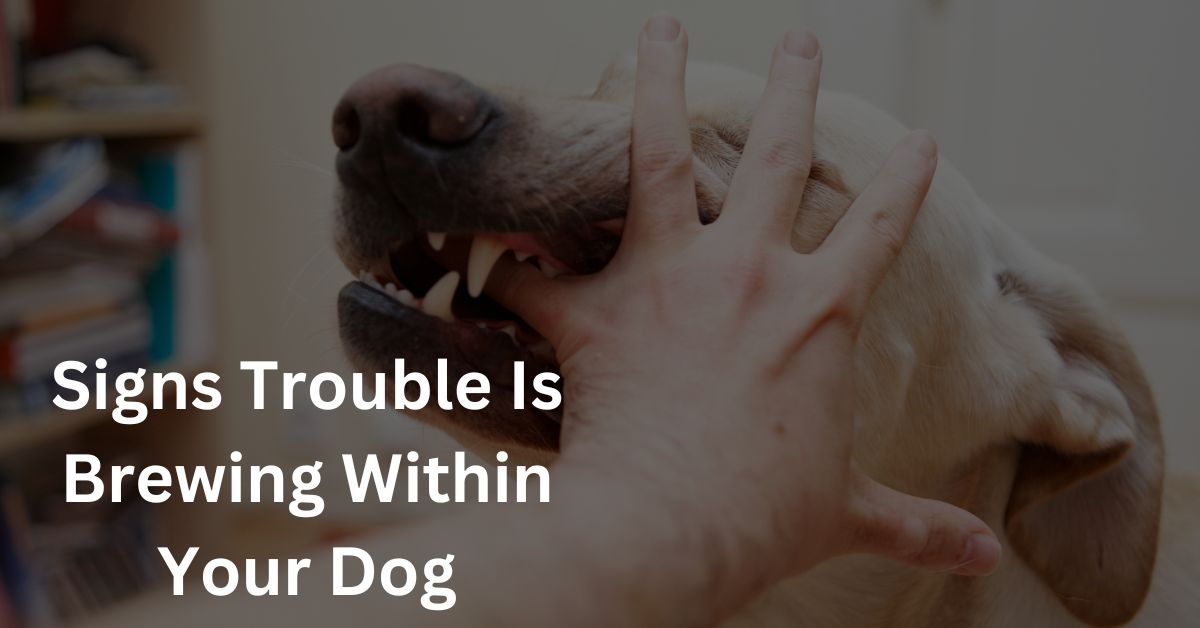The answer to the question “Can dogs eat bacon” is No. Bacon is a tasty treat for humans; however, dogs face several risks when consuming bacon, including high salt and fat content, the potential for pancreatitis, and choking hazards.

The Health Risks to Dogs for Eating Bacon
High salt content
Bacon is well-known for its high salt content, which can pose significant risks to you and your dog. Dogs aren’t equipped to handle large amounts of sodium intake, leading to potentially life-threatening conditions like salt poisoning.
This condition disrupts their electrolyte balance and places enormous strain on their kidneys as they struggle to filter out the excess salt. Over time, too much bacon can upset a dog’s digestive system and contribute to obesity due to the extra calorie intake associated with high-sodium foods.
In severe cases, it may even result in a painful and dangerous condition known as bloat. With these concerns in mind, it’s not hard to see why reducing or eliminating high-sodium foods like bacon from your dog’s diet is essential to ensure their long-term health.
Fat content
Bacon is a fatty food packed with high amounts of saturated fats. This excessive fat content can lead to indigestion and other digestive issues in dogs. Dogs’ systems aren’t designed to handle greasy foods, which can cause an upset stomach or result in vomiting and diarrhea.
In addition to immediate gastrointestinal problems, long-term consumption of bacon, with its rich fat content, spells danger for your canine friend. Consumption of fatty foods like bacon increases the risk for pancreatitis – an inflammation of the pancreas that can be painful and potentially serious.
Moreover, overindulgence in this fatty treat could contribute to obesity as it introduces excess calories into your dog’s diet. While fats offer energy for dogs, moderation remains vital as too much poses health risks.
Potential for pancreatitis
Bacon’s high-fat content poses a real danger for dogs. Triggering pancreatitis, a severe condition marked by pancreas inflammation is one potential risk. Therefore, this outcome can be potentially fatal and should not be underestimated.
The excessive intake of fatty food items such as bacon significantly increases the likelihood of developing this condition.
Feeding your dog bacon isn’t just about immediate repercussions; it also contributes to long-term health issues like obesity and blocked arteries. The saturated fats in bacon are hard to digest, leading to weight gain and other related health complications over time.
Regular consumption may even result in more severe chronic conditions like pancreatitis, especially in overweight dogs. Therefore, feeding them bacon due to its high-fat content isn’t advisable despite their fondness for it.
Choking hazards
Choking hazards are a significant concern when it comes to dogs eating bacon. The shape and texture of bacon can make it easy for pieces to become lodged in a dog’s throat, causing choking or even blockages in the airway.
This is particularly true for smaller breeds or dogs that gulp food without chewing properly. Keeping an eye on your dog while enjoying their treats and ensuring that the bacon is cut into small, manageable pieces to minimize this risk.
Can Dogs Eat Cooked Bacon?
Dogs can eat small amounts of cooked bacon in moderation without harm, but keeping a few things in mind is important.
Small amounts infrequently
Feeding small amounts of cooked bacon infrequently to dogs is considered safe. Here are some important points to keep in mind:
- Dogs can be given a small piece of cooked bacon as an occasional treat.
- It is crucial to remember that moderation is vital and that bacon should not be a regular part of their diet.
- Offering small amounts infrequently helps to avoid any potential health risks associated with consuming bacon.
- Regular consumption of bacon can lead to inflammation and pancreatitis in dogs, harming their health.
- While cooked bacon is generally safe, avoiding excessive fat and seasoning is important, as these can also pose risks.
- Blotting out any extra fat from a bacon strip before giving it to your dog can help reduce the risk of digestive issues.
- Nevertheless, it is always recommended to consult with a veterinarian before introducing any new food into your dog’s diet.
Avoid seasoning and excessive fat
Excessive fat and seasoning should be avoided when giving cooked bacon to dogs. Here’s why:
- Excessive fat: Bacon is known for its high-fat content, which can lead to weight gain and obesity in dogs. It can also contribute to pancreatitis, a condition where the pancreas becomes inflamed and can cause severe pain and digestive issues.
- Seasonings: Many bacon varieties are seasoned with garlic, onion, or spices harmful to dogs. These seasonings can cause gastrointestinal upset, anemia, or even damage to a dog’s red blood cells.
- Sodium content: The saltiness of bacon is another concern for dogs. Excess sodium can lead to dehydration and increased thirst and potentially cause kidney problems over time.
- Digestive issues: Dogs may have difficulty digesting large amounts of fatty foods like bacon. This can result in diarrhea, vomiting, or other digestive discomfort.
- Inflammation: Regular bacon consumption can increase inflammation in a dog’s body, linked to various health issues such as arthritis and heart disease.
Monitor for any adverse reactions
Monitoring your dog for any adverse reactions if you feed them cooked bacon is important. While small amounts of bacon are generally not harmful, every dog is different and may react differently to certain foods.
Symptoms of an adverse reaction can include stomach upset, vomiting, diarrhea, or changes in behavior. If you notice any of these signs after feeding your dog bacon, it may be best to avoid giving it to them in the future.
Keeping a close eye on your pet’s health is essential when introducing new foods into their diet.
Can Dogs Eat Raw Bacon?
Raw bacon poses an increased risk of illness for dogs. Uncooked pork, including raw bacon, can contain harmful bacteria and parasites that can cause food-borne infections in dogs. These bacterial contaminations can lead to upset stomachs and other health complications.
Additionally, raw bacon has limited nutritional value for dogs and does not provide the nutrients for a balanced diet. It’s important to avoid feeding dogs raw bacon to protect their digestive health and overall well-being.

Healthier Alternatives to Bacon
Some healthier alternatives to bacon for dogs include lean meats, cooked vegetables, and dog-friendly treats.
Lean meats
Lean meats such as turkey, chicken, and lean cuts of beef can be a healthier alternative to bacon for dogs. These lean meats provide protein and essential nutrients without bacon’s excessive fat content.
Turkey bacon and chicken sausage are also options to consider, as they offer a similar flavor to traditional bacon without adverse health effects. When choosing lean meats for your dog, it is important to ensure they are cooked thoroughly and seasoned minimally or not at all.
By incorporating these lean meat options into your dog’s diet, you can provide them with a tasty treat while keeping their health in mind.
Cooked or Raw Vegetables
Cooked vegetables such as carrots, broccoli, green beans, and kale are excellent alternatives to bacon for dogs. These veggies provide essential nutrients while being low in fat and salt content.
Carrots are packed with vitamin A and fiber, promoting healthy digestion and a shiny coat. Asparagus is rich in vitamins K and C, supporting your pup’s immune system. Broccoli is loaded with antioxidants that help fight off cell damage, while green beans offer a crunchy snack that is high in fiber. And if your dog likes the crunch, these are safe to give raw!
Kale is known for its high levels of vitamins C and K, boosting your furry friend’s overall health. So why not swap out the fatty bacon for some delicious cooked vegetables next time?
Dog-friendly treats
Instead of feeding your dog bacon, plenty of healthier and safer alternatives can be used as dog-friendly treats. Opt for lean proteins such as cooked chicken or turkey, which provide essential nutrients without the excessive fat and grease in bacon.
Cooked or raw vegetables like carrots or green beans can also make nutritious and low-calorie treats for your furry friend. Additionally, consider making homemade dog treats using ingredients like whole wheat flour, pumpkin puree, or peanut butter to give them a tasty treat while keeping their health in mind.
By choosing these alternatives to bacon, you can ensure that your dog stays happy and healthy without putting them at risk from the unhealthy aspects of processed pork products like bacon.
Frequently Asked Questions
Is it safe for dogs to eat bacon?
No, it is not safe for dogs to eat bacon. Bacon is high in fat and salt, which can lead to pancreatitis or sodium poisoning in dogs.
What are the potential risks of feeding bacon to my dog?
Feeding bacon to your dog can increase their risk of developing health issues such as obesity, gastrointestinal upset, pancreatitis, and heart problems due to its high-fat content.
Can a small amount of bacon be given as an occasional treat?
Giving any amount of bacon as a treat for your dog is generally not recommended. The high-fat content and potential risks outweigh any benefits they may receive from consuming it.
Are any alternative treats safer for dogs than bacon?
Yes, many healthier alternatives are available that you can feed your dog instead of bacon. Some examples include lean meats like chicken or turkey, fruits and vegetables, or specially formulated dog treats for their dietary needs. It’s always best to consult your veterinarian before introducing new foods into your dog’s diet.
Final Thoughts
While dogs can eat small amounts of cooked bacon as an occasional treat, it is important to be mindful of the risks involved. The high salt and fat content in bacon can lead to health problems such as pancreatitis and indigestion.
It is best to opt for healthier alternatives such as lean meats or cooked vegetables when providing treats for our furry friends. Safety should always be a priority when considering what foods are suitable for our beloved pets.
Before You Go
You will find these articles helpful if you want to discover which other meats your dog can eat.




Leave a Reply